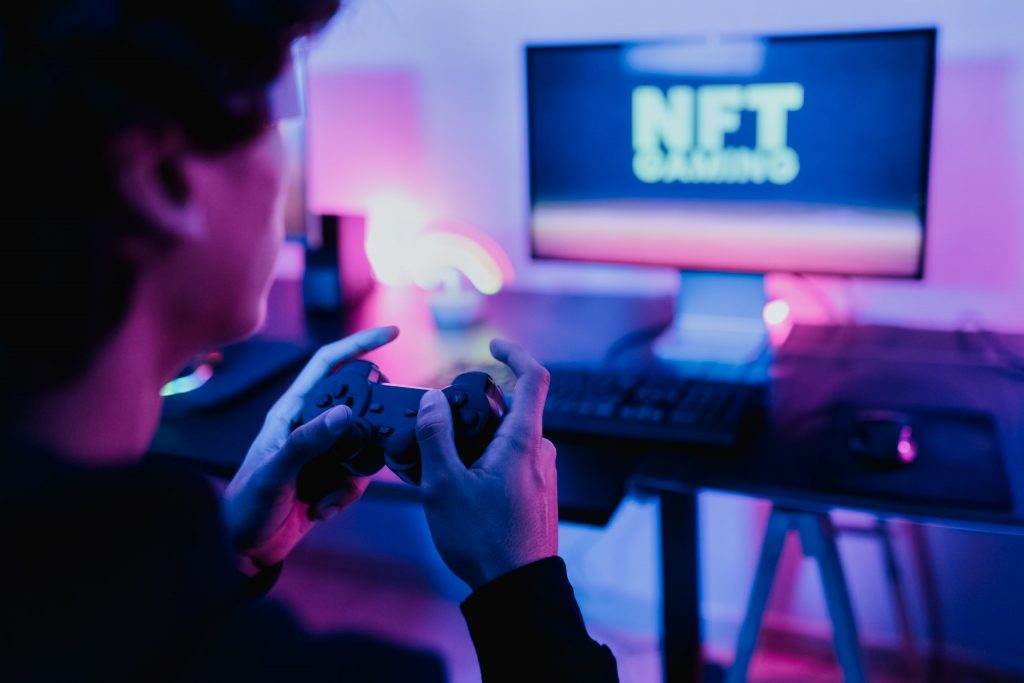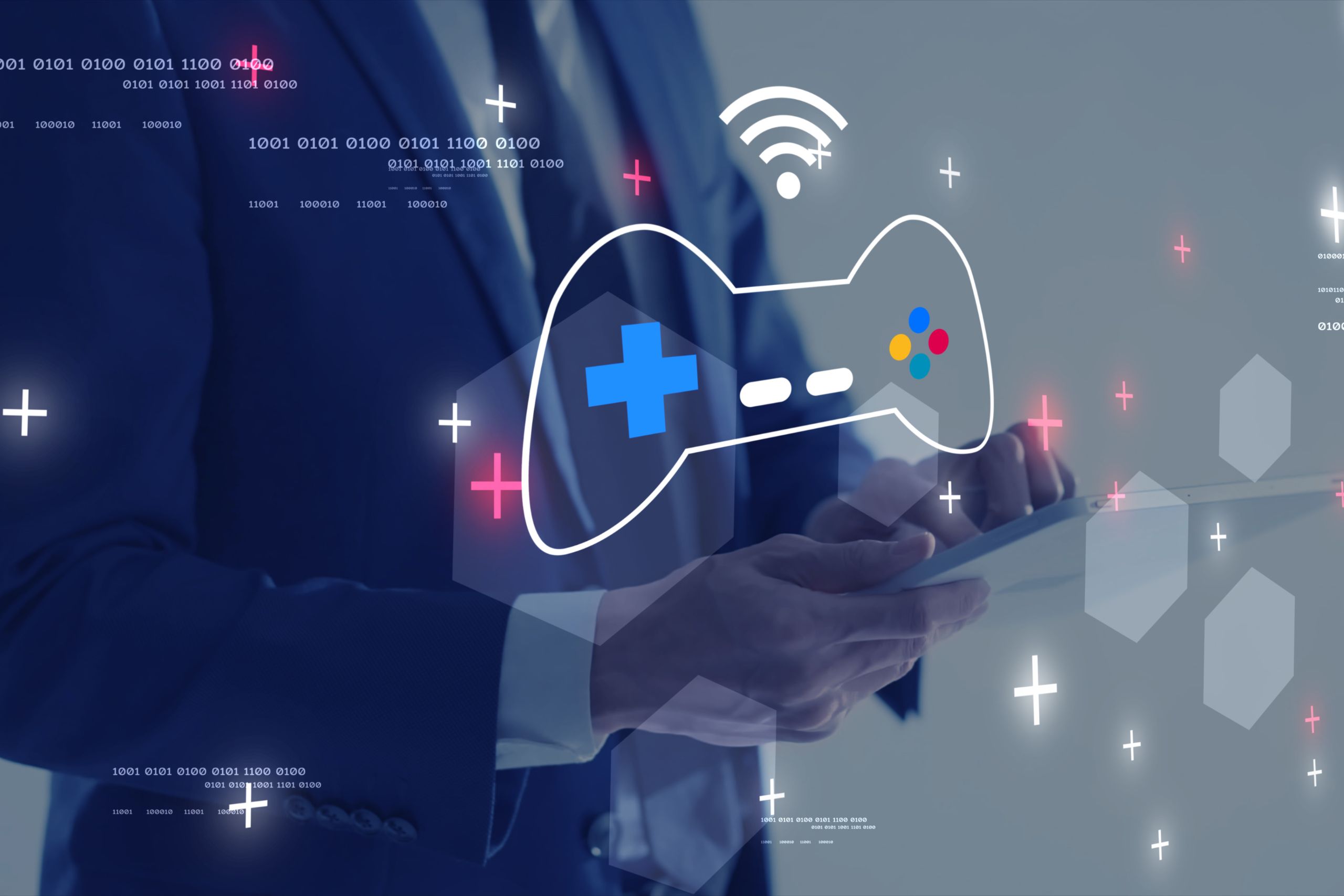Blockchain technology is bringing into the game industry heretofore unheard-of degrees of democracy, security, and inventiveness. Many times relying on centralized servers and ownership structures, conventional gaming models might restrict player control and in-game asset exchange. By allowing real ownership of digital assets, therefore empowering users, blockchain enables people to acquire, sell, and trade things across multiple platforms.
This distributed approach encourages a player-driven economy in which free from intermediary meddling participants may benefit from their assets and skills. Since blockchain ensures transparent and immutable transaction and ownership records, therefore reducing the hacking and fraud threats, it also enhances security. Play-to–earning models are one of the creative gaming mechanisms game creators use as they progressively include blockchain into their works. These changes point to a more inclusive and limitless gaming scene in which players may totally engage and interact in their virtual settings. These components taken together help blockchain to be a transforming agent for gaming going forward.
Enhanced Ownership with In-Game Assets
By use of non-fungible tokens (NFTs), blockchain technology lets players really own in-game assets. NFTs are unique digital representations of ownership kept on a distributed ledger unlike conventional game systems, in which assets are limited to one platform and under control of developers. Every NFT is unique and cannot be copied, so players may have permanent evidence of ownership for their in-game objects.
Under this ownership structure, users are free to trade, sell, or move items across many games or platforms. For example, a rare weapon obtained in one game may be sold on a market, therefore enabling players to profit on their gaming expenditures. Furthermore, NFTs may help assets to be smoothly transferred across titles, therefore improving the player experience by including ecosystems instead of isolating them.
Blockchain and NFTs so encourage a real ownership, thereby subverting the conventional wisdom on in-game objects. Players may participate in an open economy that honors their commitment and investment, therefore turning gaming from a passive experience into an active, player-driven marketplace from which they are no more just renters of their digital goods.
Increased Transparency and Security
Blockchain technology greatly improves security in digital transactions via an unchangeable, open ledger. Since every transaction is logged in a distributed network, it is quite difficult to remove prior data. This technology guarantees that every activity in a game economy is verifiable, therefore encouraging fairness among participants. Every action—including trades, purchases, and successes—is publicly known, so it discourages dishonest conduct and fosters a more responsible gaming community.
Moreover, openness of blockchain enables developers and players to have greater confidence. Players contribute to ensure fair rules and actual game assets by separately verifying game mechanics. In a sector often defined by worries about pay-to– win schemes and secret algorithms, this confidence is very vital.
Using blockchain will help developers build more fair game economies where users feel safe with their interactions and investments. Therefore, the combination of more openness and security enhances player confidence as well as raises the general integrity of gaming environments. This results in an interesting and eco-friendly experience for all the engaged parties.
Play-to-Earn Models and Economic Opportunities
Blockchain technology has revolutionized the gaming industry by including play-to- earn (P2E) models—which enable players earn real-world value via their in-game actions. With natural value outside of the gaming environment, players of these distributed games might purchase, trade, and sell original digital assets like non-fungible tokens (NFTs). This change lets players make money right from their gaming, therefore establishing a new economic model wherein time and effort spent in games provide real benefits.
Particularly for poor areas where conventional employment may be rare, the P2E model offers several economic possibilities. Playing these distributed games helps impoverished people to gain valuable digital assets or cryptocurrency ready for exchange. Moreover, these strategies inspire more participation, therefore enhancing ownership and passion in the gaming experience.
As blockchain technology advances, P2E models become more likely to challenge established gaming systems, which drives developers to create original games with user incentives foremost concern. Apart from enhancing the gameplay, this advancement creates a new avenue for financial empowerment within the gaming population.
Understanding of Decentralized Gaming Platforms
Direct contacts between gamers and developers made possible by decentralized gaming platforms are transforming the sector. These sites cut middlemen, therefore enabling a more open and community-driven ecology. Players may therefore interact more closely with games, thereby affecting their development and offering real-time comments.
The creative flexibility distributed gaming offers for developers is one of its main benefits. They are not subject to the limitations imposed by conventional publishers anymore. Rather, players might explore creative concepts and designs, usually producing original game settings. More so because players might affect content changes or game expansions, community interaction promotes this originality.
This ecosystem depends especially on blockchain technology and cryptocurrencies as they enable real asset ownership and safe transactions. Players running no danger of censorship or fraud may run exchange in-game assets. All things considered, distributed gaming systems are delivering a new age of cooperation and empowerment that is changing game development, play, and income producing. This change points to a gaming scene more varied and free with a bright future.

Conclusion
By bringing openness, decentralization, and actual ownership of in-game assets—which empowers players and creators both—blockchain technology is transforming the gaming sector. Now able to trade, sell, or own original digital assets such skins and characters, gamers help to create a more participatory and fulfilling experience. Blockchain presents developers with creative revenue opportunities such distributed markets and play-to- earn systems that can improve engagement and maintain long-term user loyalty. This change improves gaming as well as generates a more fair environment that helps all users. Adopting blockchain may result in fresh monetizing chances and enhanced game experiences. Gamers and developers are urged to investigate this technology in order to realize its whole possibilities. They should consult thorough blogs targeted on “games and gambling” to explore further the junction of gaming and blockchain, particularly in relation to gambling.



